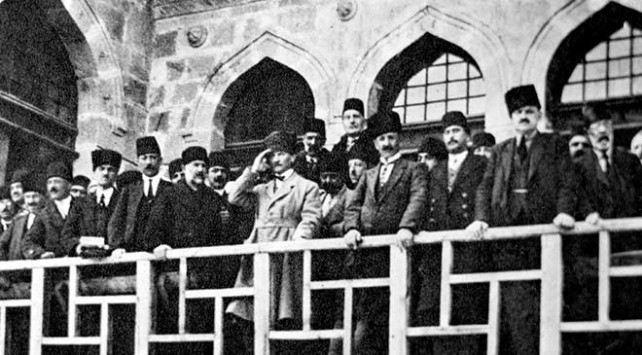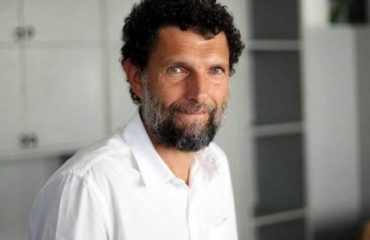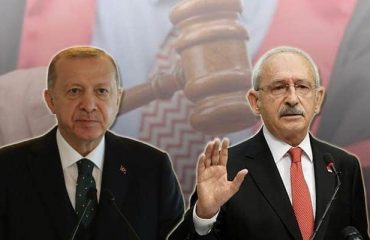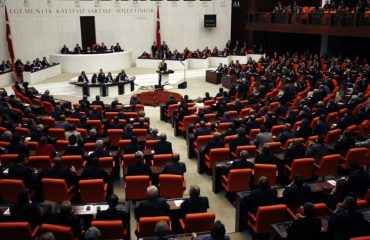

I congratulate April 23 National Sovereignty and Children’s Day “against all odds.”
I say odds because President Tayyip Erdoğan did not use the surname of Turkey’s founding father, Mustafa Kemal Atatürk and the first president of the country, in his message celebrating the “biggest day of the nation.” (Atatürk translates as “Father of Turks). I do not think that is a stance that should be expected from the president of Turkey. It does not suit a president
No, this is not formalism. This is a stance concerning the grassroots of the secular and democratic Republic.
Right after Erodğan’s message, I read Parliament Speaker Mustafa Şentop’s message on April 23. His message was important because Atatürk was the figure who founded that seat. Şentop used the full name of Atatürk in his message. So did Vice President Fuat Oktay and Nationalist Movement Party (MHP) leader Devlet Bahçeli, Erdoğan’s election partner.
But reasons to say “against all odds” is not limited to that.
Comparing April 23 to July 15
In his message, Erdoğan compared the 23 April 1920 and 15 July, 2016 military coup attempt:
“Our parliament has survived many adversities since April 23, 1920, and received the honor of “veteran ” in the War of Independence, and for a second time at the July 15 coup attempt.”
Then he starts telling about July 15.
It is known that another group that adopted political Islam, the illegal organization of Fethullah Gülen (FETÖ,) was behind the 15 July 2016 military coup attempt. So the president mentioned the name of FETÖ in his message in this regard.
Even though Erdoğan now only claims the resistance against the coup attempt on behalf of his followers only, we as the majority of the people confronted it, including the opposition parties. It is obvious faced July 15 together as the majority of the people, including the opposition parties. We all know who did what during the attempt, who sank into despair, and who did not. It is true that July 15 was a turning point.
But one has to be fair. Is it righteous to compare the foundation of the parliament that led the War of Independence and established the Republic to the July 15 coup attempt? What kind of a political stance puts his personality in the center of not only politics but history?
So we keep celebrating April 23 despite such odds.
Why is it “the greatest day”?
It is the biggest da of the nation because the period from May 19, 1919, the day that Atatürk went to the Black Sea province of Samsun to launch the War of Independence, to April 23, 1920, is actually a preparation period with congresses and activities in Samsun, Amasya, Erzurum and Sivas, and on the other side, the British intelligence’s simultaneous efforts in cooperation with Vahdettin, the last Ottoman Empire, to repress the resistance movement in the Anatolia.
The occupation of Istanbul by the invaders led by the British army on March 16, 1920 and the dissolution of the Ottoman Parliament showed that there was no hope from Istanbul.
The “denial of annexation” cadre of the military, parliament and bureaucracy, who still remained with the Ottoman Sultan until that time quickly moved to Ankara. This means that the Turkish parliament was founded on a legitimate ground that was emerged only nearly one month after the demolition of the old parliament by force of arms.
Thus, the Turkish War of Independence that started under the leadership of the Parliment, was actually not only against the invading armies, namely the external enemy, but also the internal enemy, that is, the last member of the Ottoman Dynasty in cooperation with the occupation forces.
Why is it so indigestible?
Yes, the War of Independence, led by the Parliament established on April 23, is partly a civil war by nature.
While the grandfathers of some of us were in the ranks of resistance and independence, the grandfathers of some of us said, “I wish the Greek had won. Then both caliphate and the Shariah (the Islamic law) would survive” taking sides with the invaders.
Some of their grandchildren of the latter have been offered seats at the education system, from where they ban Atatürk’s Sermon on the grounds that it insults Vahdettin.
Some of their descendants see the secular Republic as an “advertorial break” to their age of darkness.
It is not surprising that they target women’s rights, and that they cannot digest the “village institutes “that brought the light of science and art to the rural areas of the country during the Atatürk period.
Thanks to our understanding of the true spirit of April 23, we can look to the future with hope despite all these.
Despite everything, most of us continue not to avoid despair.
Happy April 23rd.


